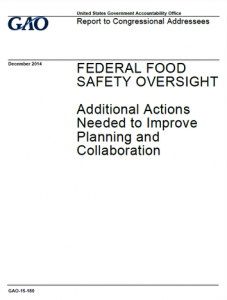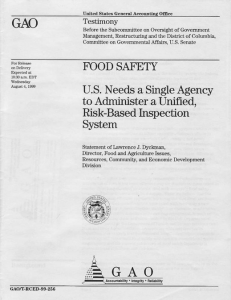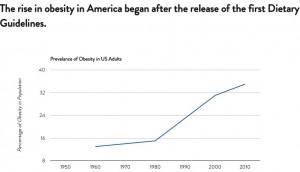GAO: USDA and FDA need to coordinate food safety activities
The Government Accountability Office has just released a new report.
Much of the report is about the need for better coordination of the food safety oversight responsibilities of the USDA (meat and poultry) and those of the FDA (everything else), not to mention the 13 other agencies that deal with aspects of food safety (the report provides a handy summary chart).

This report points out that both agencies
have mechanisms in place to facilitate interagency coordination on food safety that focus on specific issues, but none provides for broad-based, centralized collaboration…[Existing]mechanisms do not allow FDA, FSIS [USDA], and other agencies to look across their individual programs and determine how they all contribute to federal food safety goals. Nearly all the experts GAO interviewed agreed that a centralized collaborative mechanism on food safety is important to foster effective interagency collaboration and could enhance food safety oversight. The Food Safety Working Group (FSWG) served
as a centralized mechanism for broad-based food safety collaboration and resulted in a number of accomplishments, including improved coordination. However, the FSWG is no longer meeting…Without a centralized collaborative mechanism on food safety, there is no forum for agencies to reach agreement on a set of broad-based food safety goals and objectives.
The GAO complains that “for more than a decade, we have reported on the fragmented nature of federal food safety oversight.”
Actually, its complaints go back longer than that but here’s one from 1999:

I will have to go through my files but as I recall, the GAO started arguing for a single food safety agency sometime in the early 1990s. Political realities make that idea impossible. Instead, we have the Food Safety Working Group which seems to have stopped meeting.
It’s good the GAO is still on the case. We need better food safety oversight.
Tomorrow’s example: Caramel apples.





